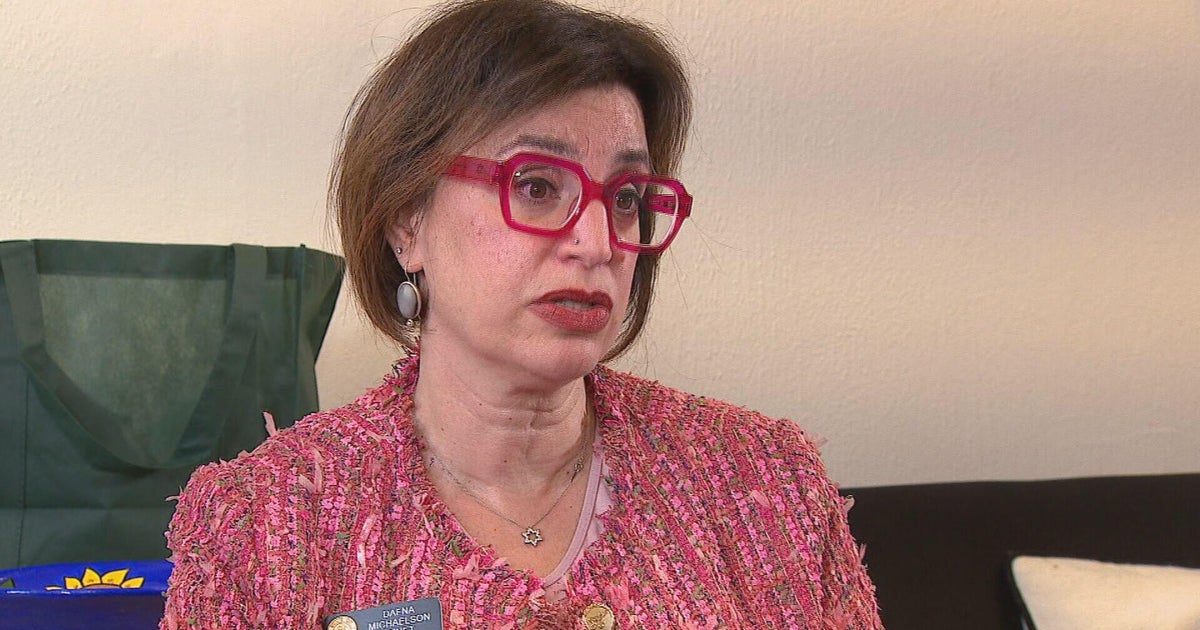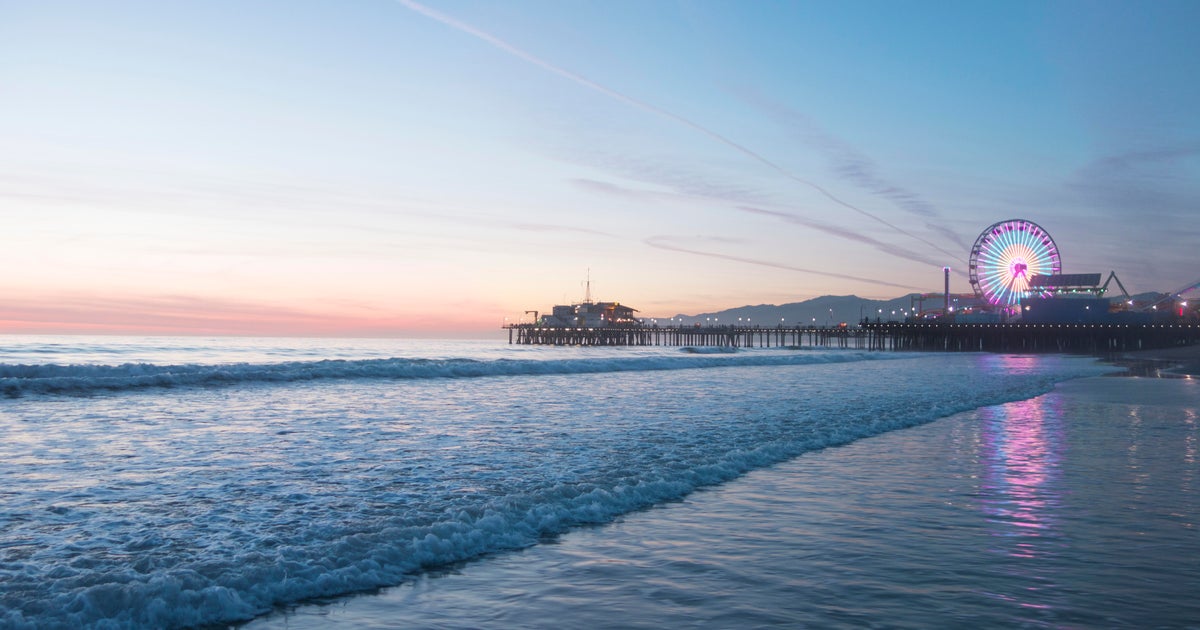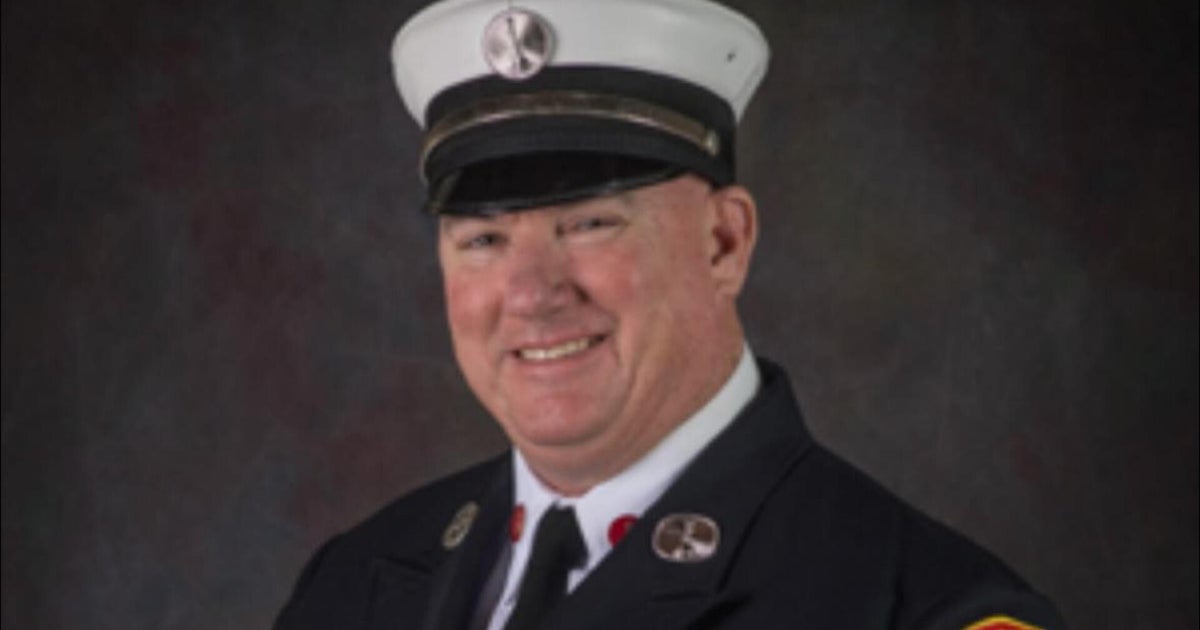Poll: Public Unsettled On Obama Challenger
WASHINGTON (AP) -- Americans have yet to find a Republican they'd clearly prefer over President Barack Obama, although half say the president does not deserve re-election.
Among Republicans, the desire to oust Obama is clear, according to a new AP-GfK poll. But it has not resolved divisions over the choice of a nominee. Former Massachusetts Gov. Mitt Romney is reasonably popular, but he has not pulled away from the field.
Former pizza company executive Herman Cain runs close to Romney as the candidate Republicans would most like to see on the ballot, but many Republicans are reluctant to back a man who has never held office. Texas Gov. Rick Perry lags in the poll, which was conducted before Tuesday night's combative debate in Las Vegas.
In that two-hour forum, several candidates sharply criticized Cain's tax proposals, and a newly energized Perry hit Romney hard on immigration.
In the poll, Romney was the choice of 30 percent of Republicans, with Cain about even at 26 percent. Perry was preferred by 13 percent, and Rep. Ron Paul of Texas topped the list of those in single digits.
Among all adults surveyed, half said Obama should not be re-elected, and 46 percent said he should be. That continues his gradual slide since May.
When all adults are asked about hypothetical head-to-head matchups, Obama and Romney run almost even, 48 percent for Obama to 45 percent for Romney. Obama holds a narrow edge over Cain, 49 percent to 43 percent. He leads Perry, 51 percent to 42 percent.
Luis Calderon of El Monte, Calif., exemplifies those unhappy with Obama but not ready to dump him.
"Even though I criticize him, I still want him to win," said Calderon, 56, a self-employed handyman who was laid off by an oil company three years ago. Obama "has to get down to business, forget about promises, just do it, create jobs," Calderon said. "But in order to create jobs, he has to be harder on the Republicans."
A Democrat, Calderon said Romney "is the one that may do a little dent on Obama."
Romney spent four years as Massachusetts governor, and he ran for president in 2008. Cain is the only candidate who has never held elected office, which might present some problems. Americans have no recent history of electing inexperienced politicians as president except war hero Dwight Eisenhower.
Of the Republicans polled, about 4 in 10 say they're less inclined to vote for someone who has never been elected to public office. That's far more than say they are disinclined to vote for a Mormon, a woman or a black candidate.
Romney and former Utah Gov. Jon Huntsman are Mormons. Rep. Michele Bachmann of Minnesota is the only woman in the race. Cain is black.
Nineteen percent of Republicans, and 21 percent of all adults, say they are less likely to vote for someone who is a Mormon. Anne Fish, a Republican and retired teacher from Columbus, Ohio, is among them. Fish, 73, said she would not support Romney "because he is not a Christian."
Mainstream Mormons, including Romney, consider themselves Christians.
Fish said she probably will support Perry. "Although I have some doubts, I think he has some ideas about how to improve the economy, how to help our country develop more jobs," she said.
Ronald Wilson, a conservative Republican from Bucyrus, Ohio, said he's undecided, although "I favor Herman Cain. He's not infected by Washingtonitis."
Wilson, 65, a retired stone quarry worker, called Romney "better than nothing."
Such comments underscore Romney's challenge. Many GOP insiders see him as the most plausible nominee and Obama's strongest potential challenger. But Romney generates little passion among Republican voters, who seem to keep shopping for an alternative as time ticks down to the Jan. 3 Iowa caucuses.
None of the candidates has begun heavy television advertising, which Romney and Perry in particular can afford.
Perry has positioned himself to the right of Romney on several issues, but he's having trouble breaking through with conservative voters. Nearly 3 in 5 Republicans say they see Perry as conservative, but only 26 percent say he's "strongly conservative." Cain gets about the same "strongly conservative" marks, while 17 percent of Republicans give Romney that label.
Among conservative Republicans, Romney is the choice of 28 percent, Cain 27 percent and Perry 15 percent. Ten percent of conservatives say they're not sure whom they'd like to see win the party's nod.
Tea party supporters split 33 percent for Cain to 29 percent for Romney and 13 percent for Perry.
Gene O'Dor, a retired postal worker from Mobile, Ala., said he likes Romney's somewhat centrist leanings.
"I think he is a moderate, like I am," said O'Dor, 66. "I feel he has the background in business to get this country back to where it needs to be."
"I don't think he is going to be a person that lies to the American public," O'Dor said.
Benjamin Matzke, a video editor from Nicollet, Minn., is among those Republicans whom Romney has yet to persuade.
"He really to me looks a lot like a career politician," said Matske, 27. He said Romney "seems to pay lip service to a lot of things that I feel are important," including abortion, but "his stance on health care is a little soft."
There seems to be a broad gender divide in the Republican contest. Among GOP women, Romney is favored over his nearest competitor, Cain, by 17 percentage points, with the rest of the field in single digits. The picture is more muddled among Republican men: 31 percent favor Cain, 26 percent Romney, 17 percent Perry and 10 percent Paul. The rest are each 5 percent or below.
Among all adults, regardless of party identification, 21 percent say they'd like the GOP to nominate Romney. Eighteen percent name Cain, 13 percent Perry and 11 percent Paul.
The poll found shifts in candidates' favorability ratings. These numbers don't necessarily track people's likelihood to vote for or against someone, but they offer insight into how candidates are being received as they become better known.
Romney, Cain and former House Speaker Newt Gingrich have gotten positive bumps since August. Romney and Cain are the only GOP contenders viewed favorably by more than 40 percent of all adults.
Romney's favorable rating has risen 10 points among all adults since August and now stands at 49 percent. Increases came across party lines but especially among conservative Republicans.
Cain's favorability rating among Republicans has nearly doubled as he has spent more time in the spotlight, increasing from 37 percent favorable in August to 71 percent favorable now. Just 10 percent of Republicans hold a negative impression of him. Party insiders will watch for signs that Tuesday's hard-hitting debate might have wounded Cain a bit.
Obama's favorability ratings are essentially unchanged since August, with 54 percent of adults holding a favorable view of him and 44 percent unfavorable.
The Associated Press-GfK Poll was conducted Oct. 13-17, by GfK Roper Public Affairs and Corporate Communications. It involved landline and cellphone interviews with 1,000 adults nationwide and had a margin of sampling error of plus or minus 4 percentage points. The poll included interviews with 431 Republicans and Republican-leaning independents; the margin of error for these results was plus or minus 6.1 percentage points.
(© Copyright 2011 The Associated Press. All Rights Reserved. This material may not be published, broadcast, rewritten or redistributed.)







